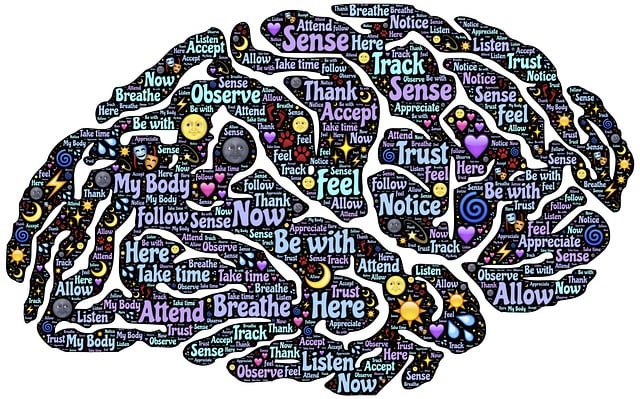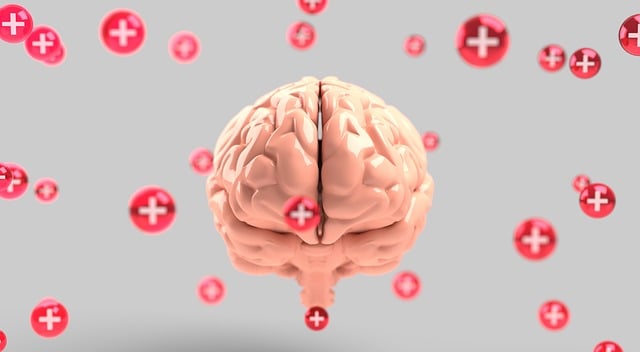Burnout among healthcare providers in Littleton is a significant concern, impacting well-being and care quality. Caused by stressful work environments, long hours, and high demands, it leads to decreased productivity and mental health issues. To combat this, organizations should implement burnout prevention strategies based on Mind Over Matter principles, including open communication, Stress Management Workshops, and support for mental health initiatives like Littleton ADD-ADHD Therapy. Healthcare providers can benefit from mindfulness meditation and cognitive-behavioral therapy (CBT) to manage stress effectively. Prioritizing self-care, achieving work-life balance, and cultivating empathy are key to preventing burnout. Innovative programs like Littleton ADD-ADHD Therapy offer holistic solutions through compassion cultivation, mindfulness techniques, journaling exercises, and awareness campaigns.
Healthcare provider burnout is a growing concern, impacting patient care and organizational productivity. This article explores comprehensive strategies to prevent burnout among medical professionals, focusing on both individual and institutional levels. We delve into the causes and consequences of burnout, offering practical solutions for organizations to foster supportive work environments. Additionally, evidence-based stress management techniques and self-care practices are highlighted, with a special emphasis on Littleton ADD-ADHD Therapy approaches as case studies demonstrating effective burnout prevention programs.
- Understanding Burnout Among Healthcare Providers: Causes and Impact
- Creating a Supportive Work Environment: Strategies for Organizations
- Evidence-Based Stress Management Techniques for Medical Professionals
- The Role of Self-Care and Work-Life Balance in Prevention
- Case Studies: Effective Burnout Prevention Programs in Practice (Including Littleton ADD-ADHD Therapy Approaches)
Understanding Burnout Among Healthcare Providers: Causes and Impact

Burnout among healthcare providers is a growing concern, impacting not only individual well-being but also patient care and overall system performance. It’s a state of emotional, physical, and mental exhaustion resulting from prolonged exposure to stressful work environments, often characterized by high workloads, long hours, and demanding patient needs. In Littleton ADD-ADHD Therapy circles, recognizing burnout is crucial as it can manifest differently in healthcare professionals, leading to decreased job satisfaction, reduced clinical effectiveness, and potential harm to patients.
The causes of burnout are multifaceted. They include work-life imbalance, lack of control over one’s schedule or practice, high expectations from both employers and patients, and limited resources for managing workload. The impact is profound—from decreased productivity and increased absenteeism to higher rates of depression, anxiety, and even suicide among healthcare providers. By understanding these drivers, healthcare organizations can implement effective burnout prevention strategies for healthcare providers, emphasizing self-care, workplace support, and fostering a culture that prioritizes mental health using Mind Over Matter Principles and encouraging positive thinking.
Creating a Supportive Work Environment: Strategies for Organizations

In fostering a healthy work environment for healthcare providers, organizations play a pivotal role in preventing burnout. One effective strategy is to promote open communication and constructive conflict resolution techniques among staff members. Encouraging team members to address concerns or challenges directly with one another can significantly reduce stress levels and foster a sense of community within the workplace. Additionally, organizing regular sessions for Stress Management Workshops can equip employees with valuable tools to handle workload pressures, time management issues, and emotional challenges they may encounter in their roles.
Littleton ADD-ADHD Therapy, while not directly related to burnout prevention, is an example of how organizations can support mental health initiatives that contribute to overall well-being. By prioritizing employee wellness through such programs, organizations create a supportive ecosystem that nurtures both professional and personal growth. Mind Over Matter principles, when incorporated into the organizational culture, can empower healthcare providers to reframe challenges as opportunities, enhancing their resilience against burnout.
Evidence-Based Stress Management Techniques for Medical Professionals

Healthcare providers, like all individuals, are not immune to stress and its potential for burnout. Implementing evidence-based stress management techniques is a proactive approach to mitigate this risk, especially in professions that demand long hours and high-pressure environments, such as medicine. These strategies can help medical professionals maintain their mental wellness, a critical aspect of overall well-being, as highlighted by the growing popularity of Mental Wellness Podcast Series Production.
One effective technique is mindfulness meditation, which has been shown to reduce stress and anxiety, enhance focus, and improve emotional regulation—essential components for building resilience in demanding healthcare settings. Additionally, cognitive-behavioral therapy (CBT) offers practical tools to manage stress by challenging negative thought patterns and promoting healthier coping mechanisms. For instance, a Littleton ADD-ADHD Therapy program tailored for medical professionals could provide strategies to navigate the challenges of high-stress work environments, thereby fostering better mental health and resilience.
The Role of Self-Care and Work-Life Balance in Prevention

In the ongoing pursuit to combat healthcare provider burnout, prioritizing self-care and achieving a harmonious work-life balance emerge as pivotal strategies. Healthcare professionals, often dedicated to their craft, may inadvertently neglect their own well-being in service to others. This can lead to mounting stress and emotional exhaustion over time. Therefore, integrating self-care practices becomes not just a recommendation but an imperative. From scheduling regular breaks to engaging in activities that rejuvenate the mind and body, such as exercise or Littleton ADD-ADHD therapy for mental health support, these measures enable healthcare providers to recharge and maintain resilience against burnout.
Furthermore, cultivating empathy and emotional intelligence plays a significant role in fostering healthy professional interactions and preventing burnout. Building strong connections with patients and colleagues through active listening, understanding, and genuine concern can reduce the emotional strain associated with the job. Effective stress management techniques, when combined with self-care and empathy building strategies, create a robust defense against burnout, ensuring healthcare providers can sustain their passion and dedication in the long term.
Case Studies: Effective Burnout Prevention Programs in Practice (Including Littleton ADD-ADHD Therapy Approaches)

In recent years, healthcare provider burnout has become a pressing issue, prompting organizations to implement innovative strategies for prevention. One notable example is Littleton ADD-ADHD Therapy, which offers a holistic approach to addressing not just ADHD symptoms but also the underlying stress and emotional challenges that can contribute to burnout. This program incorporates compassion cultivation practices, designed to foster empathy and resilience among healthcare professionals. By integrating these mindfulness techniques into daily routines, providers learn to better manage their own mental wellness, enhancing patient care and overall job satisfaction.
Additionally, Littleton ADD-ADHD Therapy emphasizes the power of Mental Wellness Journaling Exercise Guidance. Encouraging professionals to reflect on their experiences through journaling can provide valuable insights into personal stressors and triggers. This practice allows for proactive management of mental health and serves as a powerful tool in preventing burnout. Furthermore, Public Awareness Campaigns Development plays a crucial role in normalizing conversations around healthcare provider wellness. By raising awareness, these campaigns foster an environment that prioritizes prevention and encourages support systems within the industry.
Burnout among healthcare providers is a pressing issue, but through proactive strategies, organizations and individuals can create lasting change. By fostering supportive work environments, implementing evidence-based stress management techniques, prioritizing self-care, and adopting successful programs like Littleton ADD-ADHD Therapy approaches, we can enhance well-being and prevent burnout. These comprehensive measures not only benefit healthcare workers but also improve patient care and the overall resilience of the healthcare system.














